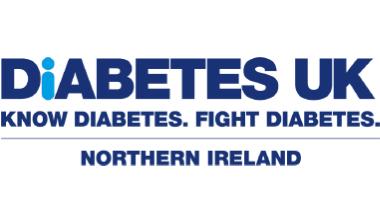Diabetes Distress & Burnout
Mental Health / DiabetesDiabetes distress is what some people feel when they’re overwhelmed by the relentlessness of diabetes. This can lead to diabetes burnout.
The way you react to things and the emotions you feel can vary for different people. You might feel frustrated, guilty, sad or worried. Sometimes you might feel all of these emotions and more from time to time. Feeling this way about your diabetes is understandable and it’s a natural reaction for anyone that’s been diagnosed with a long-term health condition. Knowing some of the signs can help you start to manage these feelings.
Lots of people feel like this sometimes but it’s important you get help. If you don’t get support to help you cope, you’re more likely to reach burnout and that can be really serious.
Signs and symptoms of diabetes distress
There’s no right or wrong way to feel, but there are some signs that things are getting too much. It can help to be aware of these – you could think about talking to your family or friends about them too:
- feeling angry about diabetes and frustrated about the demands of managing it
- worrying about not taking enough care of your diabetes but not feeling motivated to change
- avoiding going to appointments or checking your blood sugars
- making unhealthy food choices regularly
- feeling alone and isolated.
Is diabetes distress the same as depression?
Diabetes distress isn’t the same as depression. Diabetes distress is when a person feels frustrated, defeated or overwhelmed by diabetes. These feelings can come and go. And it doesn’t mean that you have these feelings about other parts of your life.
But diabetes distress can turn into depression if you have these feelings for a while and they aren’t going away. If you think you might be depressed, we have more information and support about depression to help you. You’re not alone in this.
How common is diabetes distress?
Diabetes distress is actually really common. It’s a completely natural reaction to looking after diabetes all day, every day. It doesn’t matter what type of diabetes you have – anyone can feel diabetes distress and a lot of people feel it more than once. It is slightly more common for people who take insulin.
The most common reason for feeling diabetes distress is worrying about getting complications in the future or feeling anxious if managing your diabetes goes off track.
What helps with diabetes distress and burnout
If you’re feeling diabetes distress, it’s important to remember that it happens to a lot of people and that you shouldn’t blame yourself. Diabetes is hard to manage and nobody has a perfect relationship with it.
Remember that your blood sugar levels are just a number. They’re not a reflection of who you are or how much effort you’ve put into managing your diabetes that day or week.
Be kind to yourself
Try to let go of really high expectations on things like blood test results and set smaller, more realistic goals. It can also help to stop using phrases like ‘good’ or ‘bad’ blood sugar – as this can constantly feel like you’ve done something wrong. Talk about high or low blood sugar instead. Taking time for yourself, like booking a massage or setting an evening aside for a long bath can help you relax.
Take a break
Sometimes you might need to take a proper break, for more than a few hours or a day. Although you can’t completely ignore your diabetes, taking a break means you spend a bit less time and energy on it. This could mean relaxing your targets a bit or reducing how many times you check your bloods each day.
But you need to talk to your healthcare team about this first. They’ll be able to help you make some small changes to your routine safely. It’s also important they know you’re feeling distressed so they can continue to help if this doesn’t work.
Talk about how you feel
Talk to your friends and family about how you feel and how they can support you – you might feel like a weight has been lifted from your shoulders.
Or talk to other people with diabetes – it can help to know that you’re not alone. Our online support forum is a great place to talk about diabetes with loads of people who are ready to chat or just listen.
Get support from a healthcare professional
Your healthcare team are there to support you with the physical and emotional side of diabetes. So talk to your healthcare team if you’re feeling any sort of diabetes distress. Together you’ll be able to make plans that can reduce your distress, like making small changes to your diabetes routine or going on an education course.
You might also want to speak to a psychological specialist to help you cope or adjust to life with diabetes. You can ask your healthcare team to refer you, or if you live in England you can search for your local Improving Access to Psychological Therapies (IAPT) team and contact them directly. IAPT services aren’t available across the UK.
What is diabetes burnout?
Feeling burnout because of diabetes can be different for everyone, but it can mean you stop taking care of yourself and your diabetes. For some people, this means skipping insulin doses or not taking your tablets. Some describe it as hitting a wall or giving up.
Having diabetes distress for a long stretch of time can lead to burnout, so that’s why it’s so important you recognise the signs and can access the right kind of support when you need it most. Your healthcare team is here for you and so are we – talking about how you feel is the first step.












































































































